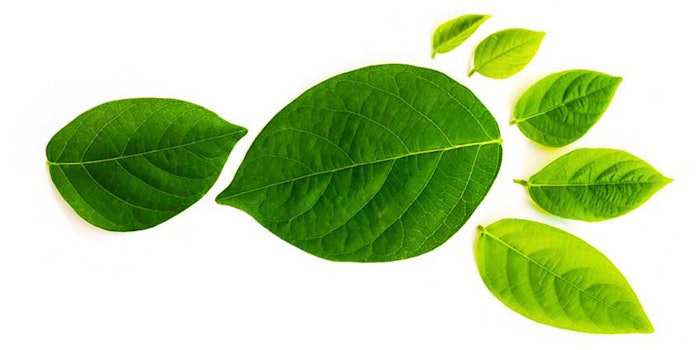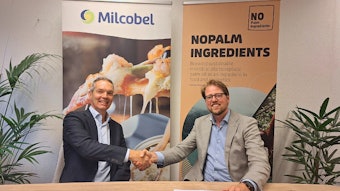
Beiersdorf and Evonik have agreement on a research partnership to develop sustainable raw materials for care products, using carbon dioxide (CO2) as the starting material.
Related: Envisioning Climate-positive Beauty
Beiersdorf plans on curating new sources of raw materials that will also reduce the company’s carbon footprint. One option presented is artificial photosynthesis technology. With the aid of electricity from solar energy and bacteria, raw materials are produced with water and CO2, drawing on natural photosynthesis as a model.
“The research cooperation fits with our sustainability agenda, a program that we are implementing in systems and across all functions,” says May Shana’a, Ph.D., corporate senior vice president of research and development from Beiersdorf. “We are pursuing a vision of becoming climate positive and we want to play a part in closing the carbon cycle.”
If Beiersdorf succeeds in using CO2 as a source for the raw materials used in personal care products, this will reduce the company’s carbon footprint as well as land used for renewable resources.
Previously: [video] Natural Extraction in Action: Traditional vs. Supercritical Fluid Techniques
Shana’a continues, “Together with Evonik, we are determining which raw materials can be produced with the aid of artificial photosynthesis and could potentially be suitable for our care products. While this has already been observed in the early stages of several other industries, this application is in its infancy in the cosmetics industry. We are proud to be entering into this research partnership.”
The joint research project of Evonik and Beiersdorf is being funded by Germany’s Federal Ministry of Education and Research (BMBF) for around €1 million.
Thomas Haas, who is responsible for artificial photosynthesis at Evonik, says, “By using carbon dioxide as the starting material for the production of valuable raw materials, we can close the carbon cycle as demonstrated by nature with photosynthesis.”
Evonik is developing the technology platform needed for artificial photosynthesis with Siemens in the Rheticus project funded by the BMBF. Evonik believes that the research cooperation with Beiersdorf is an opportunity for specialty chemical makers to expand future product portfolios for artificial photosynthesis.
Also related: Carbon Neutral New Zealand Skin Care Brand Branches to US
“With Beiersdorf, we have a partner who is joining us in extending the value chain to include sustainable CO2-based products in the interests of the consumer,” continues Haas.
With this research project, Beiersdorf and Evonik are partnered in the BMBF’s P2X II project. Launched in September 2019 as one of the projects of Kopernikus, a German research initiative for energy transition, the P2X II project aims to develop processes that use renewable energy to produce high-quality products.
For more information, contact Evonik Corp.










